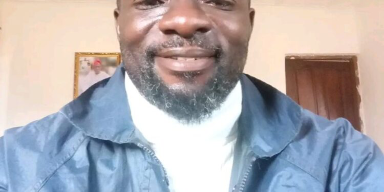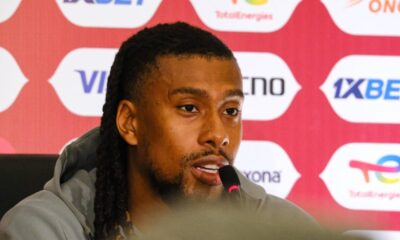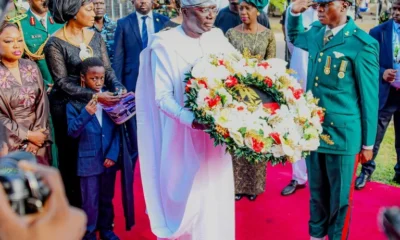Politics
THINK TANK: SENATOR MOHAMMED ALI NDUME’S DELIBERATE DISTORTION OF DEVELOPMENT LOANS DATA: SETTING THE RECORD STRAIGHT
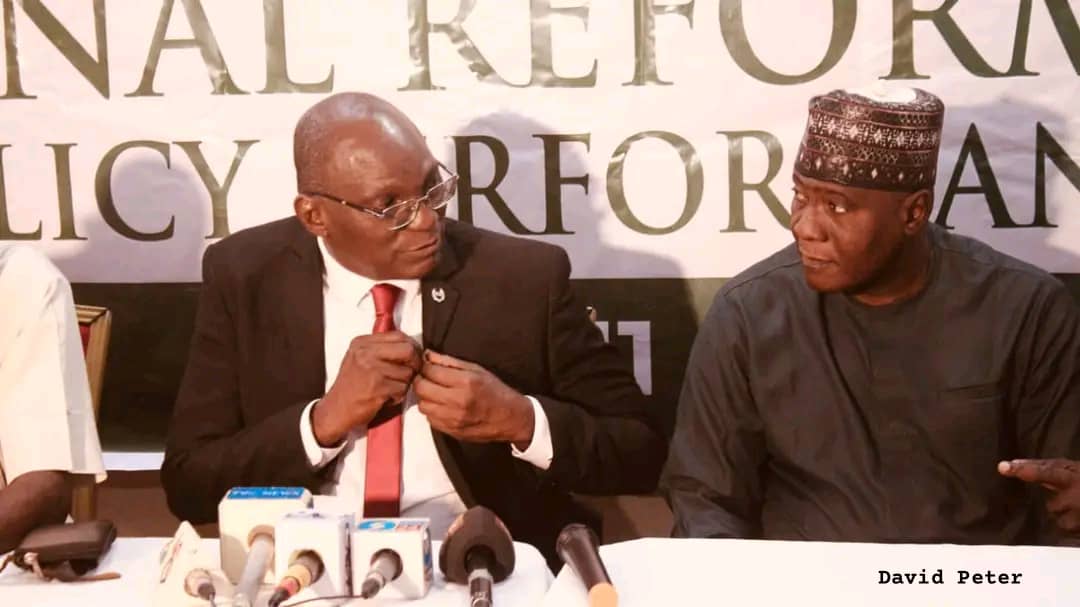
Once again, the Independent Media and Policy Initiative (IMPI) finds it necessary to set the public record straight following Senator Mohammed Ali Ndume’s recent and deliberate misinterpretation of facts regarding Nigeria’s development loans, seemingly aimed at casting aspersions on President Bola Ahmed Tinubu’s reform agenda.
It is disappointing that Senator Ndume, now in his fourth consecutive Senate term, discussed Nigeria’s national debt without offering proper context or enlightening Nigerians. During a recent television interview, he questioned the rationale and transparency of borrowings totalling $9.45 billion (about N13 trillion) since June 2023.
With public concerns already heightened around government borrowing, it was incumbent on a senior legislator such as Senator Ndume to provide accurate and holistic information—especially when Nigeria’s total public debt, while rising to N144.67 trillion in local currency, actually declined in dollar terms from $108.23 billion at the end of December 2023 to $94.23 billion by December 2024. This signals a remarkable reduction of $14 billion within a year—an unprecedented fiscal achievement since 2006 that deserves acknowledgement, not a misrepresentation.
Rather than commend this historic reduction, Senator Ndume claimed, without substantiation, that these loans are being misapplied to so-called ‘non-tangible’ projects. This criticism is shortsighted, betraying a narrow understanding of the multifaceted nature of development. Development today is not limited to physical infrastructure alone but increasingly encompasses human capital—skills, knowledge, education, and health—that underpin a productive society and stronger economy.
Countries like India and China have surged by building roads or factories and investing in their people. Human capital development—expanding access to education, healthcare, social protections, gender inclusion, and agricultural productivity—drives lasting national prosperity.
Senator Ndume’s suggestion that only physical projects matter is not supported by development economics or Nigeria’s need for inclusive growth. Notably, the loans are not commercial bank advances but concessionary, development-backed loans from institutions like the World Bank—often with very low interest rates, extended maturities (up to 40 years), and multi-year moratoria. Such terms make these loans an efficient and responsible instrument for funding national development priorities that commercial lenders will not touch.
India and China, for instance, developed their technical capacity deliberately and strategically, understanding that human skills and knowledge would be their ultimate competitive trade advantage.
The soft and intangible projects funded by the federal government are as important as the “tangible, accountable” projects preferred by Senator Ndume.
Of course, we are sure that the Senator is conscious that those loans for intangibles that he mentioned are not commercially valued loans like those made available by commercial banks. Indeed, development-backed loans are classified as concessionary loans with usually long tenures, as long as 40 years, and interest rates as low as one per cent, sometimes with a four-year moratorium.
Naturally, no commercial bank is inclined to fund these aspects of human development because they have no basis for physical and commercial quantification. However, they constitute a significant pivot in human growth and sustainability. Realising the critical need to invest in human capital, multilateral agencies emerged to fill the fiscal gaps and address and facilitate investments focused on human capital development.
The lead entities in this sector are the World Bank and the International Monetary Fund (IMF). The World Bank seeks to help countries invest in and develop their people to be productive citizens and active economic contributors. The philosophical underpinning of the World Bank’s operations is prioritising investments in education, healthcare, and social protections to realise a stronger economy full of healthy, thriving adults. This forms the kernel of the World Bank loans to Nigeria.
Our analysis shows that World Bank loans accounted for nearly 80% of Nigeria’s multilateral debt in 2024, rising modestly from $21.15 billion in 2023 to $22.32 billion in 2024—a 5.5% increase, not the $9.5 billion figure Senator Ndume cited. Meanwhile, Nigeria’s IMF debt fell sharply from $2.47 billion to $800.23 million (-67.6%) over the same period.
This evidence supports the view that the Tinubu administration is not carelessly accumulating debt but carefully balancing securing new credit for critical sectors and reducing overall public debt. The administration should be recognised for prudent debt management and reform focus, not unfairly disparaged.
Additionally, Senator Ndume’s claim that these loans bypassed parliamentary scrutiny is inaccurate. The World Bank credit approval process requires approval by its internal arms (IDA or IBRD) and subsequent concurrence by Nigeria’s National Assembly before disbursement.
For the record, the World Bank approved six projects (valued at $4.25 billion) for Nigeria in 2024, but actual disbursements between 2023 and 2024 stand at just $2.36 billion—far from the $9.5 billion claimed
Beyond this, we find it somewhat disconcerting that the Senator made efforts in that interview to misrepresent and, as it were, politicise the value of the debt secured by the Tinubu administration from the World Bank, putting it at $9.5 billion since the administration’s inception in June 2023. This is inappropriate, as such propagation of deliberately concocted misleading figures against a government with the apparent purpose of disparaging it and, in the same token, inciting the people against the government should be discouraged.
Nigeria’s debt profile is a loud testimony of a government that is not about the acquisition of debt but one that is adept at managing its debt portfolio by creating a positively skewed balance between new loans and paying down older ones. Thus, rather than impugn the capacity and the good standing of the government’s debt management approach, we submit that the Tinubu administration should be seen for what it is: a genuinely reform-focused administration.
On the whole, whereas the World Bank approved six projects valued at $4.25 billion for Nigeria in 2024, the actual disbursements between 2023 and 2024 amounted to $2.36 billion, a distant figure from the $9.5 billion Senator Ndume insinuated was the credit disbursed by the bank on account of parliamentary approvals.
We find Senator Ndume’s misstatements on development-backed loans deeply troubling and unworthy of a ranking lawmaker tasked with advancing Nigeria’s development priorities. Misrepresenting data to score political points is manipulative and undermines informed public debate.
We urge all policymakers, especially those in positions of authority, to prioritise accuracy and transparency in public discourse. Nigerians deserve nothing less than the unvarnished truth on critical national matters.
Omoniyi M. Akinsiju PhD
Chairman,
Independent Media and Policy Initiative (IMPI)
April 2025
Politics
Electoral Reform: Dino alleges senate’s plot to rig 2027 election
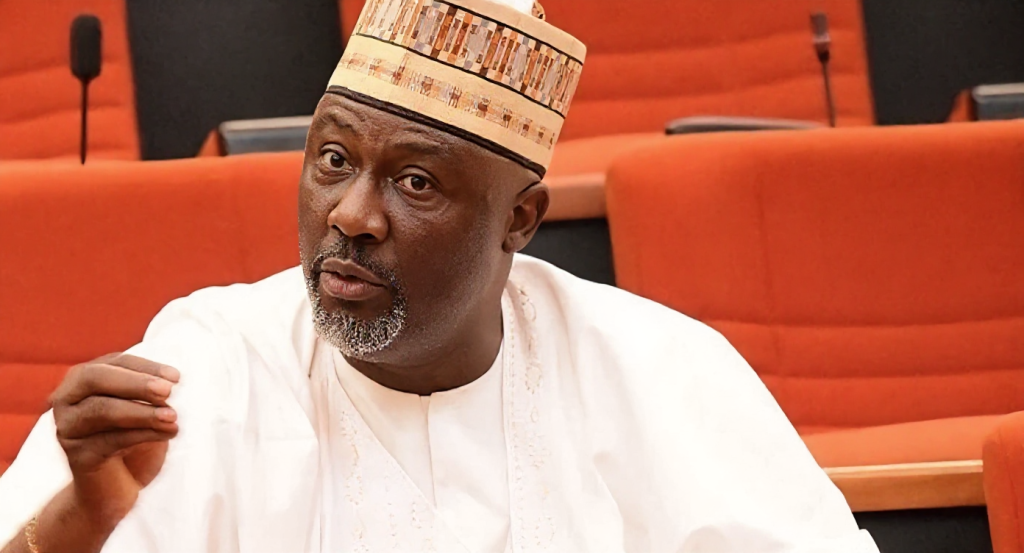
Former lawmaker, Dino Melaye Esq, has raised concerns over the Senate’s reported rejection of the electronic transmission of election results.
The move, according to Melaye, is a clear endorsement of election rigging and an indication of a sinister plan to rig the 2027 elections.
In a statement on Friday, the former lawmaker criticized the Senate’s decision, stating that it undermines the credibility of the electoral process.
The African Democratic Congress, ADC chieftain, also stated that the move opens the door for electoral manipulation and fraud.
He further warned that the rejection of electronic transmission of results is a step backwards for democracy in Nigeria.
Melaye called on lawmakers and citizens to stand up against “this blatant attempt to undermine the will of the people and ensure that future elections are free, fair, and transparent”.
Politics
Electoral Act: Nigerians have every reason to be mad at Senate – Ezekwesili
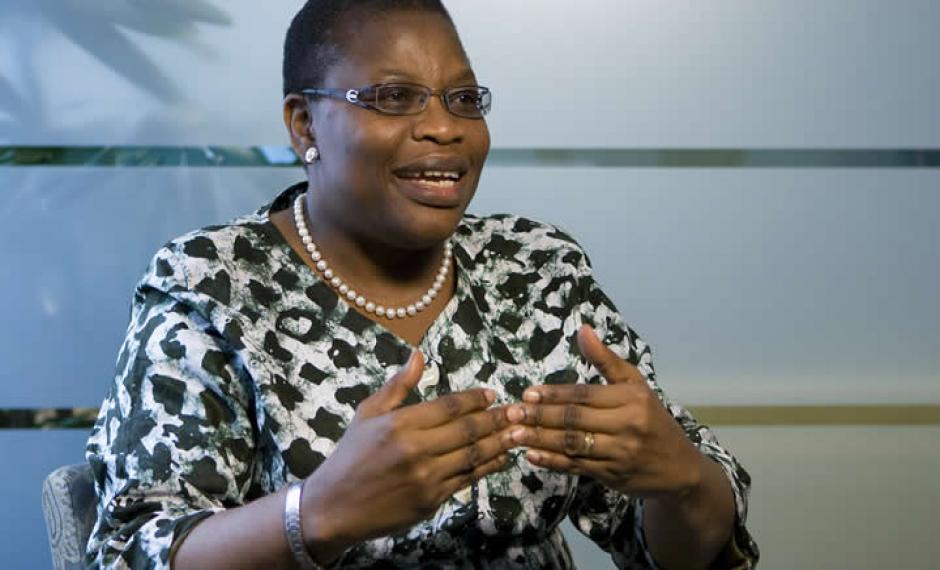
Former Minister of Education, Oby Ezekwesili, has said Nigerians have every reason to be mad at the Senate over the ongoing debate on e-transmission of election results.
Ezekwesili made this known on Friday when she featured in an interview on Arise Television’s ‘Morning Show’ monitored by DAILY POST.
DAILY POST reports that the Senate on Wednesday turned down a proposed change to Clause 60, Subsection 3, of the Electoral Amendment Bill that aimed to compel the electronic transmission of election results.
Reacting to the matter, Ezekwesili said, “The fundamental issue with the review of the Electoral Act is that the Senate retained the INEC 2022 Act, Section 60 Sub 5.
“This section became infamous for the loophole it provided INEC, causing Nigerians to lose trust. Since the law established that it wasn’t mandatory for INEC to transmit electoral results in real-time, there wasn’t much anyone could say.
“Citizens embraced the opportunity to reform the INEC Act, aiming to address ambiguity and discretionary opportunities for INEC. Yet, the Senate handled it with a “let sleeping dogs lie” approach. The citizens have every reason to be as outraged as they currently are.”
Politics
Electoral act: Senate’s action confirms Nigeria ‘fantastically corrupt’, ‘disgraced’ – Peter Obi
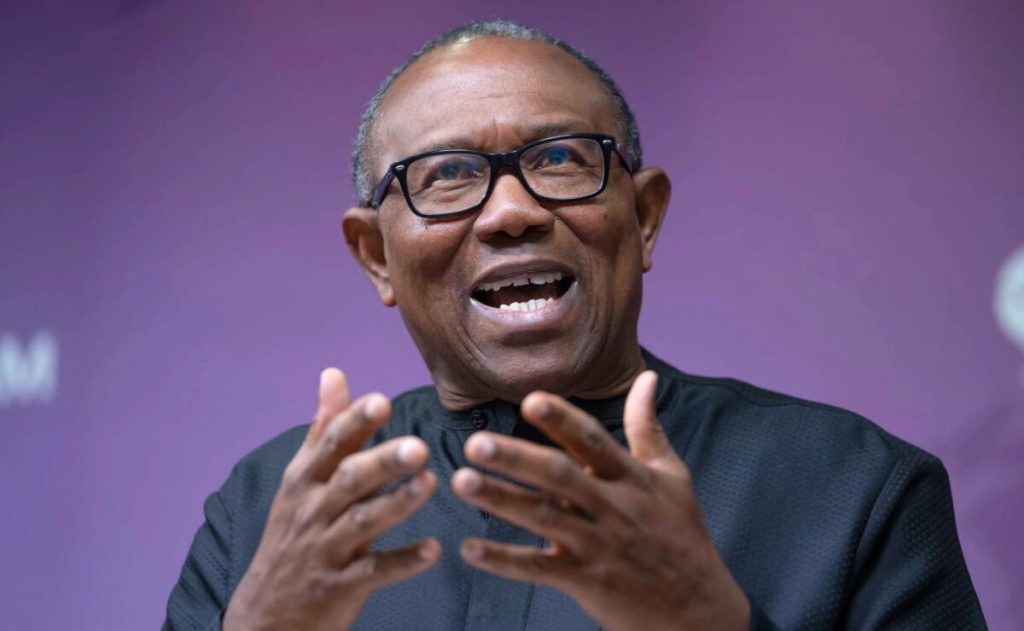
Former Labour Party presidential candidate, Peter Obi, has condemned the Senate’s refusal to make electronic transmission of election results mandatory, saying the move further exposes Nigeria as a fantastically corrupt and disgraced country.
Obi expressed his views in a statement shared on X on Friday, where he accused lawmakers of deliberately weakening Nigeria’s democratic process ahead of the 2027 general elections.
He explained that his reaction came after a brief pause to mourn victims of a deadly tragedy in Kwara State, where over 150 people reportedly lost their lives.
“Let us first pray for the souls of the innocent Nigerians lost in Kwara. That painful incident is why I delayed responding to the shameful development surrounding our electoral system,” he wrote.
Describing the Senate’s decision as intentional and dangerous, Obi said rejecting mandatory electronic transmission was not a simple oversight but a calculated attempt to block transparency.
“The Senate’s open rejection of electronic transmission of results is an unforgivable act of electoral manipulation ahead of 2027,” he said.
According to him, the action strikes at the heart of democracy and raises serious questions about the true purpose of governance in Nigeria.
“This failure to pass a clear safeguard is a direct attack on our democracy. By refusing these transparency measures, the foundation of credible elections is being destroyed. One must ask whether government exists to ensure justice and order or to deliberately create chaos for the benefit of a few.”
The former Anambra State governor linked the post-election controversies of the 2023 general elections to the failure to fully deploy electronic transmission of results, insisting that Nigerians were misled with claims of technical failures.
“
The confusion, disputes and manipulation that followed the 2023 elections were largely due to the refusal to fully implement electronic transmission,” he said.
He added that the so-called system glitch never truly existed.
Obi compared Nigeria’s electoral process with those of other African countries that have embraced technology to improve credibility, lamenting that Nigeria continues to fall behind.
“Many African nations now use electronic transmission to strengthen their democracy. Yet Nigeria, which calls itself the giant of Africa, is moving backwards and dragging the continent along.”
He criticised Nigeria’s leadership class, saying the country’s problems persist not because of a lack of ideas but because of deliberate resistance to meaningful reform.
“We keep organising conferences and writing policy papers about Nigeria’s challenges. But the truth is that the leaders and elite are the real problem. Our refusal to change is pushing the nation backwards into a primitive system of governance.”
Warning of the dangers ahead, Obi said rejecting electronic transmission creates room for confusion and disorder that only serves the interests of a small group.
He also recalled past remarks by foreign leaders who described Nigeria as corrupt, arguing that actions like this continue to justify those statements.
“When a former UK Prime Minister described Nigeria as ‘fantastically corrupt,’ we were offended. When former US President Donald Trump called us a ‘disgraced nation,’ we were angry. But our continued resistance to transparency keeps proving them right.”
Obi warned that Nigerians should not accept a repeat of the electoral irregularities witnessed in 2023.
“Let there be no mistake. The criminality seen in 2023 must not be tolerated in 2027.”
He urged citizens to be ready to defend democracy through lawful and decisive means, while also calling on the international community to closely monitor developments in Nigeria’s electoral process.
“The international community must pay attention to the groundwork being laid for future electoral manipulation, which threatens our democracy and development,” Obi stated.
He concluded by expressing hope that change is still possible if Nigerians take collective responsibility.
“A new Nigeria is possible but only if we all rise and fight for it.”
-
Business1 year ago
US court acquits Air Peace boss, slams Mayfield $4000 fine
-

 Trending1 year ago
Trending1 year agoNYA demands release of ‘abducted’ Imo chairman, preaches good governance
-

 Politics1 year ago
Politics1 year agoMexico’s new president causes concern just weeks before the US elections
-

 Politics1 year ago
Politics1 year agoPutin invites 20 world leaders
-

 Politics1 year ago
Politics1 year agoRussia bans imports of agro-products from Kazakhstan after refusal to join BRICS
-
Entertainment1 year ago
Bobrisky falls ill in police custody, rushed to hospital
-
Entertainment1 year ago
Bobrisky transferred from Immigration to FCID, spends night behind bars
-
Education1 year ago
GOVERNOR FUBARA APPOINTS COUNCIL MEMBERS FOR KEN SARO-WIWA POLYTECHNIC BORI



